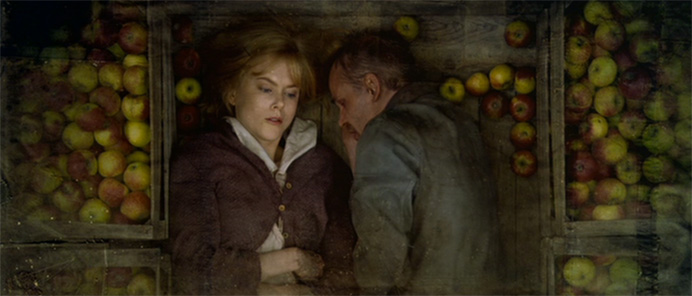
Dogville (2003)
I don’t really get into my political leanings here at Smug Film, for the obvious reason of this being a site about movies, not politics, but also because I hate creating arbitrary ‘dividing lines’ in my work. It’s petty, and I can’t stand when others do it. For instance, I’m a huge Woody Allen fan, I think he’s our greatest American filmmaker, but I cringe whenever he peppers little jabbing jokes against the Right in his films when the story doesn’t even call for it. Those sort of winks to the audience take you out of the film momentarily, whether you agree with them or not. It’s distracting and wholly unnecessary. So rest assured, people who disagree with me politically—there will be no lazy digs, or insults, or other ‘playing to the base’ bullshit in this post whatsoever.
This list will be of particular interest to libertarians, that’s a given, but even if that ain’t your particular alignment, it should at least be a unique window in the the sort of things we, or at least I, care about, both politically and philosophically. And don’t worry, there are no propaganda docs on here; these are simply great movies, many of which (hell, probably all of which) aren’t even made by libertarians. Whether intentionally or unintentionally, they just so happen to contain, within their myriad elements, certain elements that we get a kick out of. Enjoy!
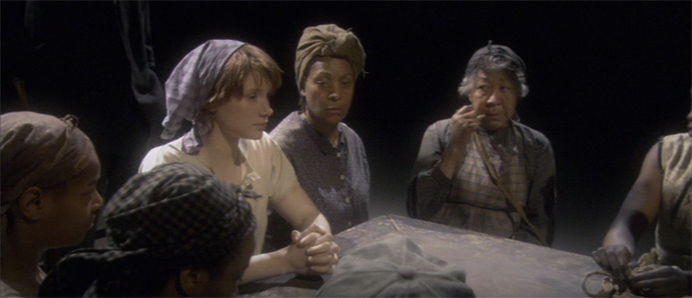
Dogville (2003) & Manderlay (2005) | Dir. Lars von Trier | 178 min. / 139 min.
I’m counting these as one film on the list because you really shouldn’t see one and not the other. Manderlay is the sequel to Dogville (although to a certain extent, they’re standalone works, but they do enhance each other, so just watch both.) Of the two, Manderlay is the one that deals most with topics of particular interest to libertarians though, such as the unintended consequences of do-gooder liberal intrusion on freedom for the sake of ‘fairness’.
Personally, I think Dogville is the better movie (and Tarantino is spot-on in saying that if Von Trier had written it as a play, it would have won a Pulitzer) but both are phenomenal. Manderlay gets a bad rap for some reason, though; it currently sits at 51% on Rotten Tomatoes, whereas Dogville is at 70%, even though there’s really no quality drop between the two whatsoever. My suspicion is that some critics weren’t quite sure how to feel about Manderlay’s politics, and were made uncomfortable by the fact that it’s a confrontational movie about race that doesn’t seem to have a liberal agenda (which wasn’t always rare, but is certainly rare these days).

Storytelling (2001) | Dir. Todd Solondz | 87 min.
You don’t have to watch the movies on this list in order, but I do think Storytelling might serve as a nice palate cleanser after the quite dour Manderlay. It deals with some of the same themes: race, liberal hypocrisy, and exploitation, but in a darkly comedic way. If you’re familiar with any of Todd Solondz other work (Welcome to the Dollhouse, Happiness, et al.) you certainly know what you’re in for.
This is my personal favorite of his films. On the surface, it’s a pretty simple film, but it’s deceptively so. I’ve watched it more than any of his others, and each time I find myself thinking about the questions it raises for days after, which is quite impressive for a comedy.

Barcelona (1994) | Dir. Whit Stillman | 101 min.
Another comedy! This one is about two American squares, one a salesman, the other, a naval officer, trying to meet women and fit in in a country that doesn’t seem to take kindly to Americans. This is a pretty light movie, fully of witty, breezy dialogue, but at the same time it takes its subject matter—foreign prejudice against Americans—quite seriously.
A lesser filmmaker might have made these guys bumbling butts-of-jokes, or militaristic zombies (as so often happens when we see Right-leaning characters in film). Instead, they’re three-dimensional and smart, which might be disarming at first for liberals who haven’t spoken to anyone intelligent from the other side of the aisle, and who’s concept of the Right is basically George W. Bush and Dick Cheney.
If you dig this film, you’ll surely enjoy the other two films in the Whit Stillman Trilogy: Metropolitan (1990) and The Last Days of Disco (1998)—the latter of which being my favorite film of his. He’s made one other, Damsels in Distress, which came out last year and was, for me, a disappointment, so save that one for last. (I talk in depth about it here, if you’re interested why I dislike it.)

Bicycle Thieves (1948) | Dir. Vittorio De Sica | 93 min.
A hardworking man gets his property stolen and tries to get it back—basically, the perfect movie for us private property rights enthusiasts. Especially since it paints this as quite painful and sad and frustrating; you truly feel the tragedy of being thieved from. And you also get a glimpse into the mentality of those who thieve—this movie seriously tackles the sick, tribalist mindset of robbers (and those who look the other way when robbery occurs).
Also, it’s widely regarded as one of the best films of all time, so that’s another reason to see it, I guess.
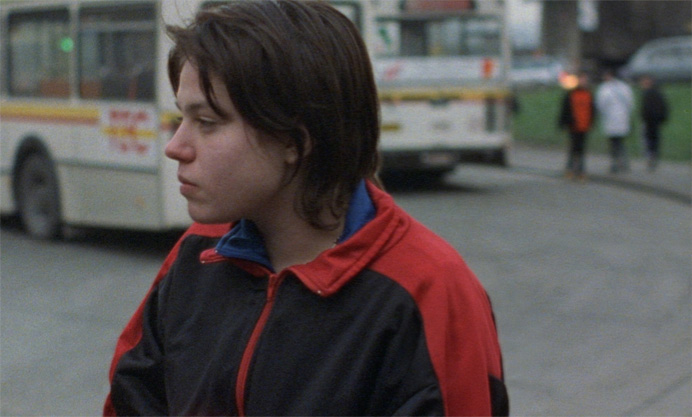
Rosetta (1999) | Dir. Jean-Pierre & Luc Dardenne | 95 min.
A natural light, shakycam indie about a teenage trailer park girl and her alcoholic mother. On the surface, it might sound a nihilist-naturalist festival darling, but said teenager actually spends the course of the film trying to find and hold down a job! Yes, a realistic, gritty drama about someone merely trying to make enough money to get out of their fucked up living situation, and the difficulties of that. Rosetta, emotionally, is kind of an antihero, but her pursuit is entirely valid. And it’s quite refreshing to see a work of this kind where a young person is actually trying to make something of themselves, as opposed to just laying around naked taking about nothing with fellow nothings, like on Girls.
By the way, this was a blatant influence on the wonderful film Fish Tank which came out a couple years back, so if you like the style and vibe of this one, check that one out too. Although, I should warn you that in Fish Tank, the protagonist is a lot less likable, and her pursuit is less than admirable. But it’s still a very good movie.

Jiro Dreams of Sushi (2011) | Dir. David Gelb | 81 min.
Jiro Ono is kind of the Howard Roark of sushi. Does his own thing, has impeccable standards for his work, is uncompromising—you get the gist, you read The Fountainhead, I’m preaching to the choir here.
Over the course of the documentary, we get to spend time with this modern master and bask in his righteousness—and I mean that without a shred of hyperbole or sarcasm. This is a guy who truly takes his work seriously, and one can learn a lot from that. I found him to be quite inspiring, and refreshingly, I felt the same way about the documentary itself. Great care was taken to craft simple yet beautiful shots and cuts that truly reflected Jiro’s soul. It’s clear Jiro’s presence and high standards had a profound effect on those involved.
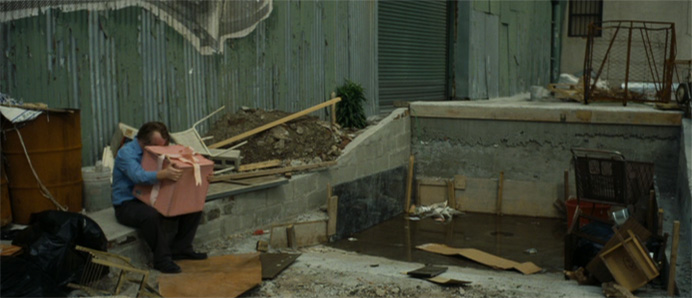
Synecdoche, New York (2008) | Dir. Charlie Kaufman | 124 min.
Depending on who you ask, this is either a tearjerker melodrama or the greatest dark comedy of all time. I subscribe to the latter camp, and if you have any distaste for brain-clouding subjectivity, and roll your eyes at narcissists who let their fickle emotions and wholly irrational perceptions of the world rule their mind, you’ll probably be right there with me.
Phillip Seymour Hoffman expertly portrays a depressed playwright in a downward spiral that is entirely due to his subjective view of the world around him. Plain and simple, he lacks reason and rational thought. And although that might be clear to us Libertarians (since we adore such concepts and hold them in high regard) many audience members seem to relate to him, and see his morose and wholly incorrect view of life as true.
I love the fact that this movie can be seen two completely different ways. The great Steve Allen once said that “tragedy plus time equals comedy.” To quote another brilliant comedian, Mel Brooks, “Tragedy is when I cut my finger. Comedy is when you fall into an open sewer and die.” I have no idea whether or not Charlie Kaufman would agree with my Objectivism-tinged assessment of his film, but I’m sure he’d agree with those two quotes—and if you do as well, this movie is definitely up your alley.
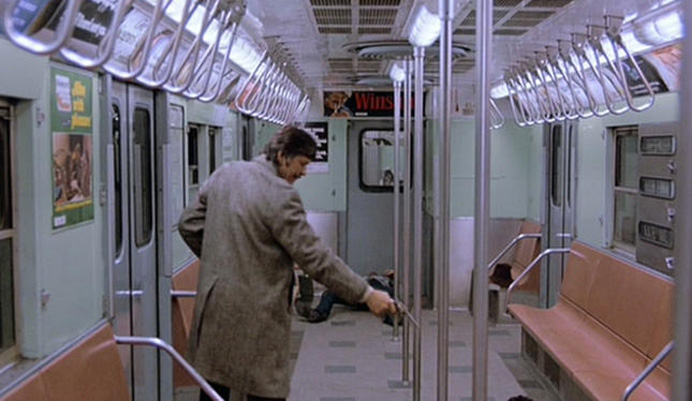
Death Wish (1974) | Dir. Michael Winner | 97 min.
This film is kind of a touchy one. Much like Synecdoche, you can look at it two very different ways. Pro-gun people can see it as on their side, but anti-gun people can as well. And this isn’t accomplished in a wishy-washy ‘everyone’s right’ way; it’s a complex and truly three-dimensional film, and as such, is quite enduring and hardly feels dated.
Wherever you stand on gun control, this is an important film to watch. Because even if you’re 100% on the vigilante Paul Kersey’s side, there’s an undeniable visceral awfulness to his murders, in the way they’re shot. The cinematography isn’t on your side like in a Tarantino revenge fantasy or a video game—the camera stays quite objective and the gunshots have weight. The film never lets you forget that these characters lives are ending.
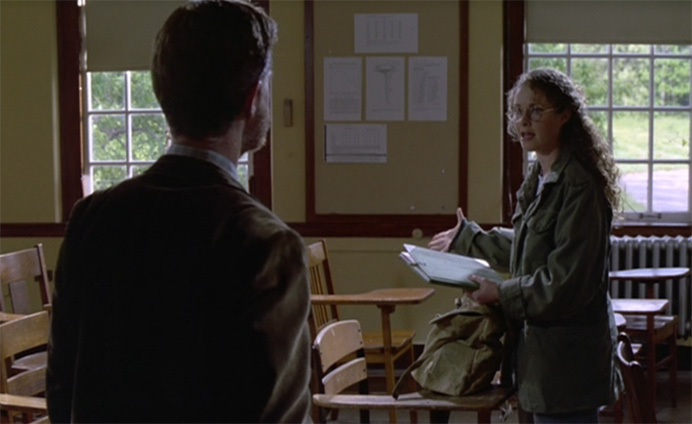
Oleanna (1994) | Dir. David Mamet | 89 min.
To me, although this is basically just a movie about two people talking, this is a horror movie, and as tense a horror movie as they come. I don’t see how anyone could even see it otherwise. But then, I don’t know how anyone can get roped into ’empowerment’ groups that spew hate while believing themselves to be anti-hate, yet these groups exist and these people exist, so I’m sure there are some people out there who will side with the female character in this film. To me though, she’s the absolute worst nightmare of any rational, upstanding person. That’s all I’ll say about the film, because you should watch it without knowing much else.
Actually, I guess I’ll mention one more thing: William H. Macy is in it! Everyone loves to find out that William H. Macy is in a movie. It’s like finding out there’s chocolate chip cookies for dessert.
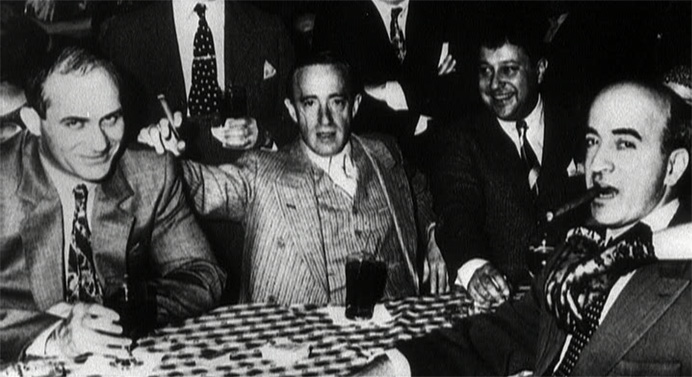
Zelig (1983) | Dir. Woody Allen | 79 min.
And speaking of dessert, I’ve saved the best for last. I consider this to be one of the absolute greatest films of all time, not just in its ahead-of-its-timeness on a technical level, but because it’s one of the smartest and most unique cautionary tales ever told. This is a film that should be shown in High Schools and discussed for a week after. Doing so would change young lives for the better.
To put it simply, this film is about a man named Zelig who has the unique ability to instantly chameleon himself to whatever people he’s around. If he’s around Asians, he becomes Asian. Chefs, he becomes a chef. Etcetera. This makes him a famous and well-liked curiosity—but at the cost of his own individuality. The more he performs this impressive feat, the more his sense of identity deteriorates, and he soon grows confused and melancholy.
It saddens me that Ayn Rand was not alive to see this movie. She would have adored it. It also saddens me how many Libertarians and Republicans I talk to who have never even heard of it. This should be a movie that is embraced by anyone who is a proponent of individuality and a defender of the smallest minority on earth—the individual.
To say this film is as relevant today as it was when it came out is an understatement, as it has not yet even had its day. Even with a 100% rating on Rotten Tomatoes, this film is underrated. Self-professed Woody Allen fans will talk all day long about how great Annie Hall or Manhattan is (and they are) but Zelig rarely comes up, even though it’s lightyears better, and vastly more important to mankind than the rest of his films combined.
So, if you see one movie from this list, this should be it. The rest are great, don’t get me wrong, but this film is probably the best weapon against fascism and collectivism that cinema has to offer. Embrace it, love it, spread the word.
I feel awful saying this, but I’ve barely seen any of these films. I’ll have to get on that right away.
I’ve always enjoyed the idealism of Libertarians, even if the only freedom it professes is the freedom to choose your own masters or starve to death. It’s tough love, but without the love.
All this time reading you and I had no idea you were a libertarian. Personally I strongly disagree with a lot of the tenants of Rand’s philosophy (I lean strongly liberal) but I don’t want to get into a political debate. I’m more interested in discussing the movies. Especially Bicycle Thieves, because it’s one of my favorite movies as well but it’s fascinating that two people coming from very different mindsets can appreciate it for vastly different reasons.
When I look at Bicycle Thieves I see it more as a man who is a victim of society and capitalism. But he doesn’t just sit by and do nothing feeling sorry for himself, he struggles for work. Finally, by fortune, he is granted a job. He sacrifices comfort in order to get his bike out of hock (I love the little detail of selling the bed sheets, it’s bizarre how important to sleeping having a sheet can be and that scene makes me think).
I agree, it focuses largely on the pain of being robbed. And the way an act of theft can completely destroy the victim in unimaginable ways. But the scene that resonates most for me is when Antonio brings his son to the restaurant, and the son looks over at the rich family and wishes he could have what they have. Antonio tries to make the dinner as nice as he can for his son, but ultimately it becomes awkward and saddening, a realization of their position in life as the impoverished.
Antonio is a man who WANTS to work. He is far from a lazy man (after all, his tireless search is the basis of the film), but because of his lack of means he will likely forever be stuck in his position as poor. And sadly he can’t give his son a good life. And, without giving the ending away, Antonio sinks as low as possible in desperation, and is forced to live with what he has done. He just can’t win, as hard as he tries.
Interesting how we can look at the same film in very different ways. I owe it a rewatch since it’s been some time, will definitely be thinking about your POV.
Antonio is definitely a victim of his society. I don’t know if he’s specifically a victim of capitalism per se (because I don’t know much about the economy of Italy in the 1950’s) but I didn’t see much evidence of that in the story anyway. I saw his problems more as stemming from the tribalist element in his society, these groups of poor who, for one thing, steal, but also, band together in denial of any wrongdoing. It’s less about him vs. this one thief, and more about him vs. this tribe that will band together against you if you accuse one of them of stealing—even if (and especially if) they did.
His journey over the course of the film is him realizing the true source of his problems—his fellow man, but more specifically, his fellow poor (those that are immoral, at least). And the reason he feels remorse at the end is because he’s a man of integrity, and can’t shut off that part of himself that one needs to shut off in order to do wrong things. (And the fact that he’s a man of integrity is part of why he got the job in the first place.)
The film paints a very clear picture of a poor man of integrity, and poor people who have abandoned integrity and banded together as a tribe. It’s more about morality than politics or economics.
When is it right to steal a loaf of bread? In many situations in society, people turn to theft for survival because the society they find themselves in has been poorly-designed. Is it not possible that a society puts people in positions in which they’re required to abandon their ‘integrity’ (I use quotations because I personally think it’s quite an integral thing that humans steal if they need to do so in order to survive), often for their own survival, has no integrity itself?
The ‘loaf of bread’ argument can very easily turn into a slippery slope where any perceived inequality can be a justification for crime. You and I don’t live in societies where in order to eat, one must steal food. Homeless shelters exist, soup kitchens exist, and anyone panhandling on the street can scrounge up a dollar or two for McDonalds.
Yes, in a completely fucked up society where you need to steal food in order to survive, it’s the society that’s immoral, not necessarily the person. But that is not the society depicted in Bicycle Thieves. Times are hard, but they aren’t that dire.
Funny you didn’t mention Gran Torino, but I guess that would’ve been too obvious.
Clockwork Orange is a pretty great libertarian movie too.
Both good picks! But yeah, I wanted to stay off the beaten path for the most part.
I know this blog is old and you might not respond or even read this comment, but I still have to point this out.
While I haven’t seen Dogville, but I doubt it has any Libertarian themes when the filmmaker (Lars von Trier) is a self-proclaimed Socialist and even sympathized with the Nazis/National Socialist Party.
As I say in the article, Manderlay is really the one more up Libertarians’ alley, but you can’t really see one and not the other. For one, Manderlay is the sequel to Dogville, and two, Dogville is too great a movie to not see. Also there isn’t really anything particularly Socialist—or Nazi, for that matter—in Dogville or Manderlay. They’re films about the human condition, not politics. But, the human condition aspects of Manderlay will definitely appeal to Libertarians.